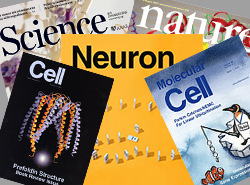Publication of IMPRS-LS student Valter Bergant

Bergant, V., Yamada, S., Grass, V., Tsukamoto, Y., Lavacca, T., Krey, K., Mühlhofer, M.T., Wittmann, S., Ensser, A., Herrmann, A., Vom Hemdt, A., Tomita, Y., Matsuyama, S., Hirokawa, T., Huang, Y., Piras, A., Jakwerth, C.A., Oelsner, M., Thieme, S., Graf, A., Krebs, S., Blum, H., Kümmerer, B.M., Stukalov, A., Schmidt-Weber, C.B., Igarashi, M., Gramberg, T., Pichlmair, A., and Kato, H.
(IMPRS-LS predocs are in bold)
EMBO J, 2022, e111608.
doi: 10.15252/embj.2022111608
Attenuation of SARS-CoV-2 replication and associated inflammation by concomitant targeting of viral and host cap 2'-O-ribose methyltransferases
The SARS-CoV-2 infection cycle is a multistage process that relies on functional interactions between the host and the pathogen. Here, we repurposed antiviral drugs against both viral and host enzymes to pharmaceutically block methylation of the viral RNA 2'-O-ribose cap needed for viral immune escape. We find that the host cap 2'-O-ribose methyltransferase MTr1 can compensate for loss of viral NSP16 methyltransferase in facilitating virus replication. Concomitant inhibition of MTr1 and NSP16 efficiently suppresses SARS-CoV-2 replication. Using in silico target-based drug screening, we identify a bispecific MTr1/NSP16 inhibitor with anti-SARS-CoV-2 activity in vitro and in vivo but with unfavorable side effects. We further show antiviral activity of inhibitors that target independent stages of the host SAM cycle providing the methyltransferase co-substrate. In particular, the adenosylhomocysteinase (AHCY) inhibitor DZNep is antiviral in in vitro, in ex vivo, and in a mouse infection model and synergizes with existing COVID-19 treatments. Moreover, DZNep exhibits a strong immunomodulatory effect curbing infection-induced hyperinflammation and reduces lung fibrosis markers ex vivo. Thus, multispecific and metabolic MTase inhibitors constitute yet unexplored treatment options against COVID-19.
